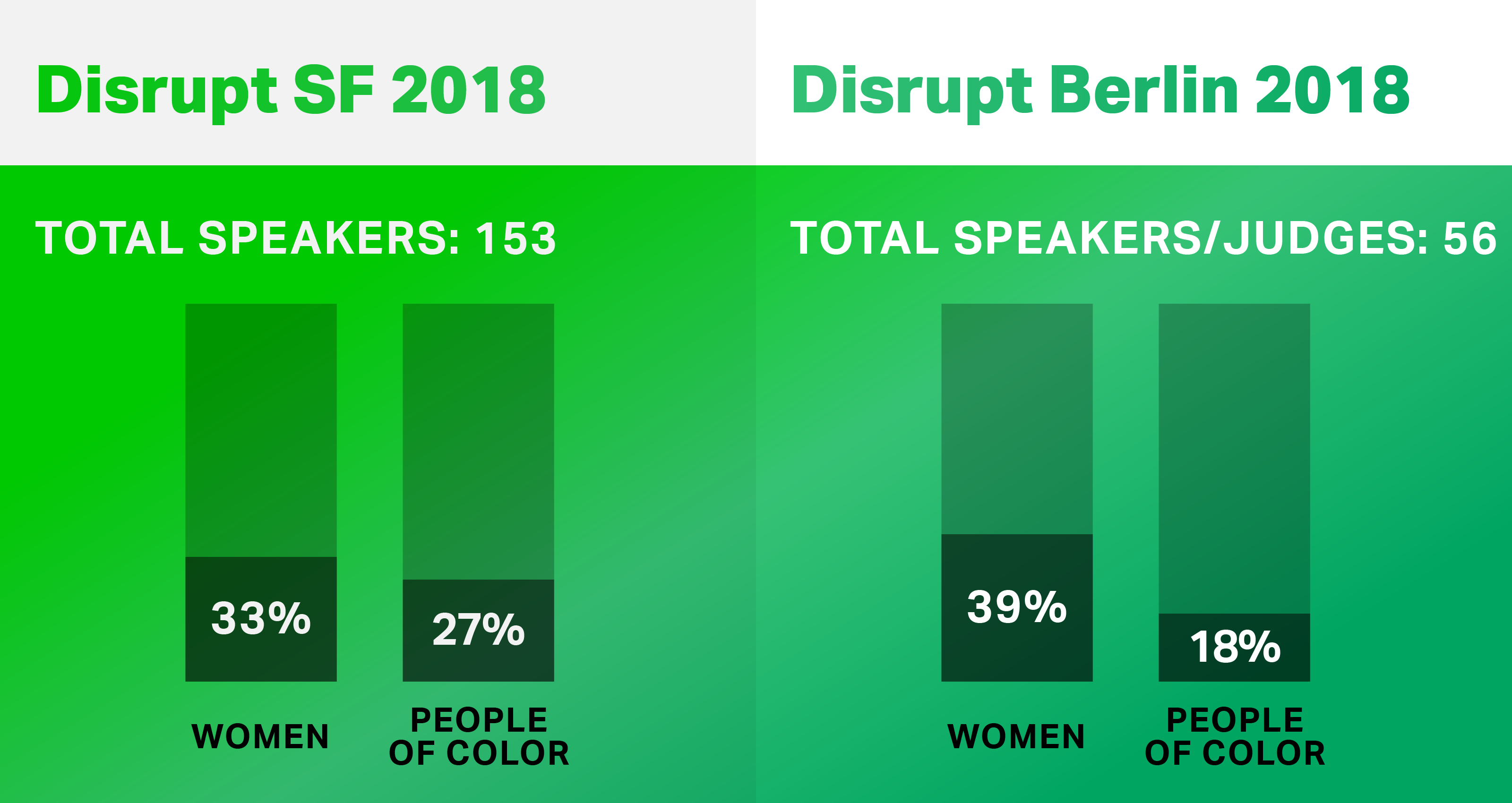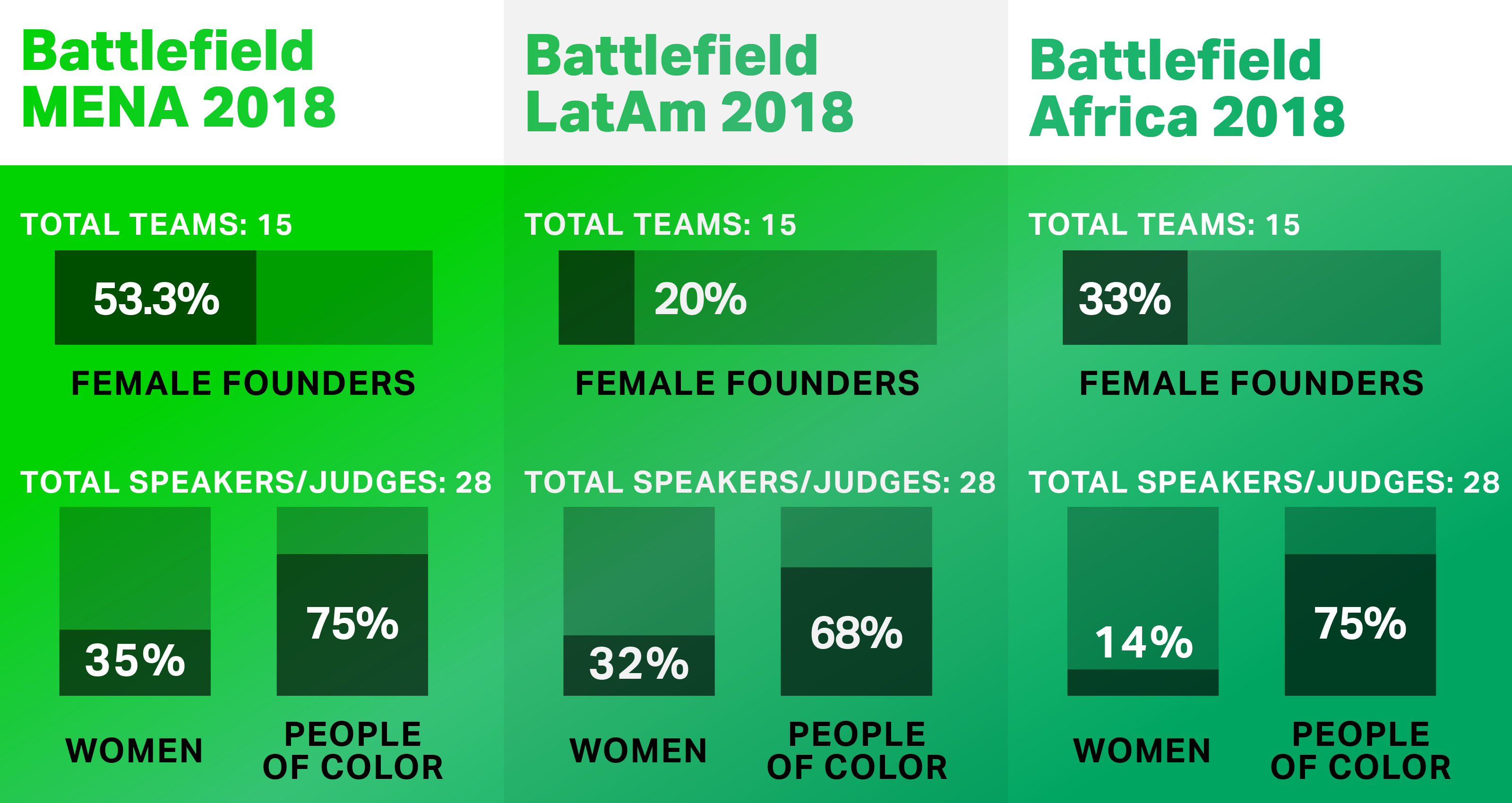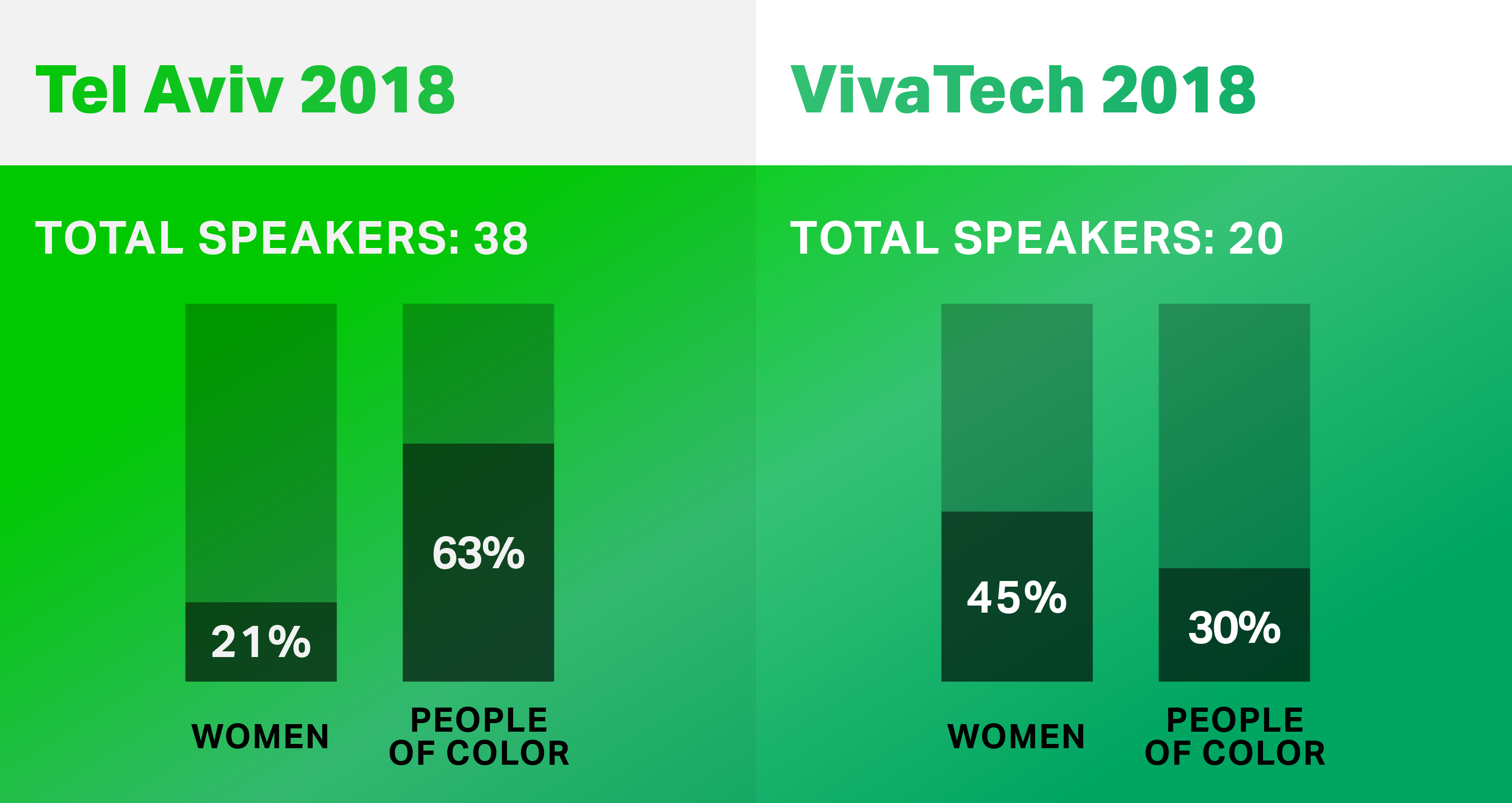Welcome to the third annual TechCrunch Include Progress Report. Our editorial and events teams work hard throughout the year to ensure that we bring you the most dynamic and diverse group of speakers and judges to our event stages. And finally, at the tail end of 2019, we bring you … 2018 data. (You can see 2017 data here.)
In 2018, TechCrunch produced Disrupts in San Francisco and Berlin, as well as regional Battlefield events in Zug, Switzerland; Lagos, Nigeria; São Paulo, Brazil and Berlin, Germany. We also produced a number of Sessions events, including the increasingly popular Robotics edition, as well as Blockchain and AR/VR.
It is important to us that we foster an environment that reflects the increasingly diverse tech industry. We are pleased to report that we saw an overall increase across the board with regard to inclusion, while still acknowledging that we weren’t yet where we needed to be when it comes to women and people of color across our stages. Happily, 2019 has been even better, and we’ll bring you those numbers soon.
Below we have compiled data from our 2018 events about the makeup of people who appeared as panelists, judges and founders of the Battlefield competitors.
Disrupt
Our flagship conference attracts speakers, judges and Battlefield contestants from all over the world. It serves as a global arena for startups in all stages of development, as well as investors interested in finding their next big investment.
At Disrupt SF in 2018, of the 153 total speakers and judges, 33% were women and 27% were people of color. On the Battlefield stage, of the 22 teams, 36% had female founders. This is up from 29% the year before.
At Disrupt Berlin, of the 56 speakers and judges, 39% were women and 18% were people of color. Of the 12 teams that competed on the Battlefield stage, half the founders were women.

Regional Battlefield
Our Battlefield competition isn’t limited to Disrupt. We take it on the road in order to give as many startups an opportunity to compete. In addition, these events include panels designed around region-specific topics. In 2018, we hosted Battlefield competitions in the Middle East and North Africa, Latin America and Africa regions.
Battlefield MENA showcased 15 teams; of those, 53% were founded by women. Of the 28 speakers and judges, 35% were women and 75% were people of color.
Fifteen teams competed in Battlefield LatAm, 20% of which were led by women. Out of the 28 speakers and judges, 32% were women and 68% were people of color.
And finally, in Battlefield Africa, a total of 15 teams competed. Of those, 33% were founded by women. Of the 28 speakers and judges, 14% were women and 75% were people of color.

Sessions
Our daylong Sessions events are targeted at specific topics. In 2018, we held events about Blockchain, robotics and AR/VR. TechCrunch Sessions events attract to the stage specialists in their industries speaking to rapt audiences.
Of the 28 speakers who appeared onstage in Berkeley for Sessions: Robotics, 25% were women and 21% were people of color. In Zug, Switzerland for Sessions: Blockchain, of the 29 speakers, 17% were women and 21% were people of color. And in Los Angeles at Sessions: AR/VR, 34% of the 29 speakers were women and 24% were people of color.

Miscellaneous
Tel Aviv
Our event in Tel Aviv leaned heavily toward mobility, and served as a preview of what would become Sessions: Mobility in 2019. Of the 38 speakers in our programming, 21% were women and 63% were people of color.
VivaTech
In 2018, TechCrunch also hosted a hackathon at VivaTech in Paris, as well as presented editorial programming. Of the 20 speakers, 45% were women and 30% were people of color.

Comments
Post a Comment